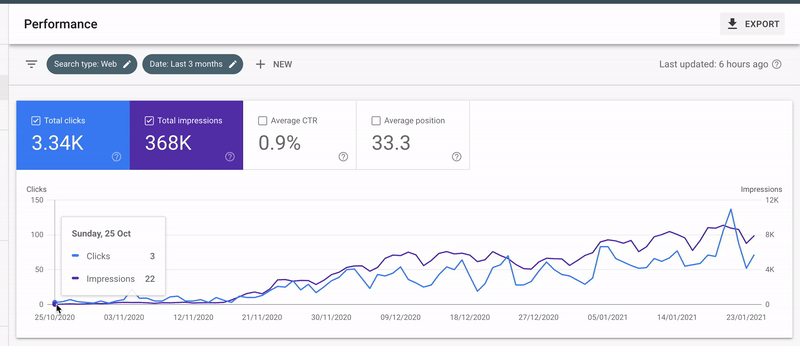How To Think: The Most Important Meta-Skill Of Your Life
I’m convinced that learning how to think is the most important meta-skill of your life.
How you make decisions decides all the outcomes of your life - work, health, relationships, everything.
How you think dictates the decisions you make.
Ergo, the most powerful investment that an individual can make to improve their life is to improve their thinking process.
Table of contents
- Why learning to think is more important than ever
- What is effective thinking
- How to improve your thinking skills
- Thinking from First Principles: The most powerful skill
- Further reading: Links
Why learning to think is more important than ever
The world has become a noisy place.
We’re connected to the internet 24x7 and the moment we browse online, we are bombarded by competing interests that want to gather our attention, voices and opinions that want to influence our thoughts and ideas, and more.
It happens subtly, in your subconscious and therefore without you realising it.
The world has become busier than ever.
Being busy adds to the problem, and so does multitasking which happens as a result of being “busy”.
Being busy means you aren’t ever idle, and if you’re never idle, your internal thought process doesn’t get time to germinate new ideas or information for long enough.
You also don’t take out enough time to think critically about an idea or thought, and that hampers your ability to make long-term, good decisions with positive second-order and n-th order effects.
What is effective thinking
“Thinking means concentrating on one thing long enough to develop an idea about it.” - William Deresiewicz, Solitude and Leadership
I find this to be the clearest definition of effective thinking. The essay describes how the biggest barrier to thinking deeply in today’s times is multitasking.
I believe that multitasking is simply a symptom, it’s root is in having too much stimuli from the internet (noise) and being busy all the time.
These result in people trying to make split-second decisions, jump between competing priorities every few minutes with a quick peek at their Twitter feed in between it all.
The outcome of effective thinking is making good decisions
Good decisions are ones which take longer to arrive at, require questioning your own assumptions or discovering new information about the topic.
You can identify a good decision by what it does for you long after you made the decision, i.e. from its n-th order effects.
Bad decisions are the ones that consume time and give you anxiety and stress long after the decision is made.
For example, early in with DelightChat we made a few decisions about the core architecture of the web app, how navigation would function based on the URL, and that the URL of a unique ticket varies based on its status.
That decision has come to bite us as it hampers our ability to update the core logic around organising tickets by various dynamic states, among other things.
It turns out that creating dynamic views of tickets is core to building an effective helpdesk, and the only solution now is to rewrite that extremely integral part of our codebase.
Why did we make this bad decision?
- We did not think deeply about the problem - about the implications of URL based navigation and the functionality we might need to build in the future that might get affected.
- We borrowed the idea from someone else - we (used to) take heavy inspiration from Front app, but all that did was lend us the same architectural flaws that their system embodies.
- We moved too quickly on such a critical decision - a side-effect of being busy and in a hurry, we did not give this decision enough time for us to arrive at right idea about it, for us to have considered all the pros and cons, for us to have discovered possible n-th order effects.
How to improve your thinking skills
The best part about thinking is - everyone can improve theirs. And the easiest way to do that is - to think more!
Seriously, the starting point of becoming a better thinker is practicing the meta-skill itself by asking yourself this question often - “How to think effectively?”
Fortunately for you, I won’t leave you with this cliffhanger.
Here are 3 actionable ways to improve your thinking:
- Study mental models
- Become familiar with cognitive biases and logical fallacies
- Practice the meta-skill by thinking about thinking
1- Study mental models
A mental model is an established thought process that you can use to solve problems.
There are mental models specific to the type of problems you face, for example MVP or Minimum Viable Product is a mental model used in startups and building businesses.
Anchoring is another mental model used as a sales tactic in order to anchor the value of a product in your mind, and then offer you a better priced version that seems to give you the “most value”.
There’s also mental models that can be applied broadly across a spectrum of problems. Inversion, which is to think of how “not to do” something, has a wide range of applications. Use it to become a better designer, marketer, manager, boyfriend or husband, friend, and so on.
If you’re just starting your study of mental models, look for these two types:
- general mental models that can be applied across multiple facets of your life,
- specific mental models that are applicable to your industry or work or a specific challenge that you’re facing.
2- Become familiar with cognitive biases and logical fallacies
A cognitive bias is a deviation from rational judgement, where your individual view or “subjective reality” about an idea or problem clouds your perception, leading to making inaccurate or illogical judgements in the view of a third-party, unbiased observer.
Confirmation bias is one of the most common cognitive bias, where you tend to agree with information that supports your pre-existing worldview.
To counter that, one must consciously seek information that disagrees with their worldview, thereby giving themselves a chance to form a rational and balanced point of view.
A logical fallacy is an error in reasoning that is logically incorrect. There are names given to common fallacies that you and I both have tripped on in the past.
Ad Hominem is a common fallacy where when someone makes a valid and strong point that disturbs your point of view, your comeback is to make a personal attack on the person itself rather than trying to counter their argument.
Logically, who does that? But we do. And that’s why it’s a logical fallacy.
3- Practice the meta-skill by thinking about thinking
Think actively about how you are thinking.
This means to be self-reflective of your decisions, questioning yourself on whether you made the right decision and for the right reasons, or did you overlook certain details because it did not agree with you or because you were in a hurry to find out.
You can practice this meta-skill in your mind, by journaling it down using pen and paper, or by bouncing your thoughts in conversations with other people and noting their questions and remarks.
Thinking from First Principles: The most powerful skill
First principles thinking is when you deconstruct any knowledge, concept, idea, mechanism into its constituent elements, and then find new ways to combine them or introduce new elements while doing so.
When you think from the ground up in this manner, you discover (like Elon Musk did) that the materials making up a rocket only cost 2% of the typical price.
The core idea of first principles thinking is
- deconstruction, and
- thinking from ground up.
First principles is widely talked about, and hence I won’t delve deeper into the concept. You can find excellent reading material across the internet.
Further reading: Links
I hope my post served as a starting point, a launchpad for you to dive into the world of thinking about thinking, and becoming a better decision maker as a result.
Don’t stop here though. I’m sharing some links for you to continue reading after you’ve reached this point.
Mental Models
- Mental Models Examples by Julian Shapiro
- Mental Models I Find Repeatedly Useful by Gabriel Weinberg
- Super Thinking: The Big Book of Mental Models
Cognitive Biases
- The Cognitive Biases Tricking Your Brain by Ben Yagoda of The Atlantic
- List of cognitive biases - Wikipedia
Logical Fallacies
- 15 Logical Fallacies You Should Know Before Getting Into a Debate
- 10 Logical Fallacies to Avoid in Arguments
- List of fallacies - Wikipedia
📖 Continue Reading
By the way, I teach a course on how to grow your startup using Programmatic SEO.

My course is a methodical and data-driven approach to finding keywords, understanding user intent and creating dozens or hundreds of pages of content.
Learn how to apply this framework to your business, whether it's ecommerce, SaaS, or even a side project and grow your business using Google Search Traffic and LLM AI Citations. No prior SEO knowledge required.
